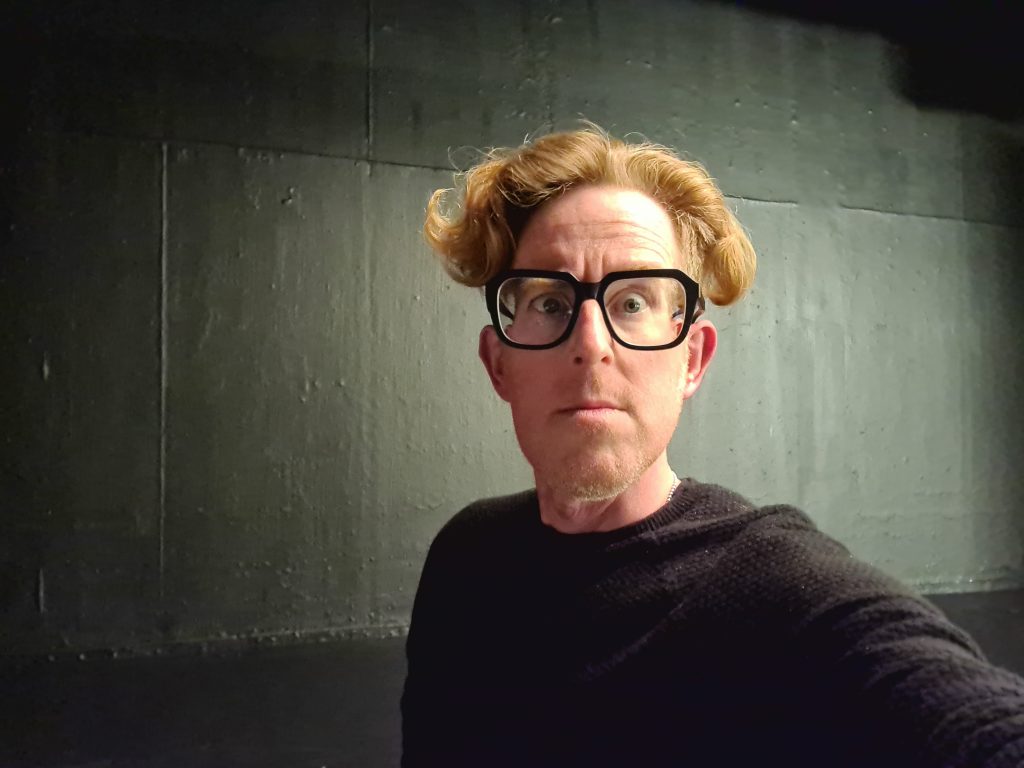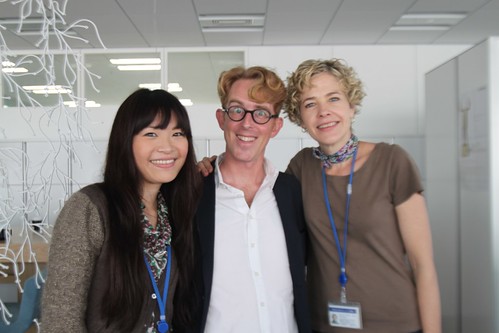
Most of us have a plan. Whether long term or short term, private or professional, we like to think that having and sticking to a plan can help us become successful members of society. At very least, it won’t make us unsuccessful.
Ishay Karni is one of Israel’s most critically acclaimed commercial directors. A 30-year career in advertisement has taught him that sometimes plans need to change.
Ishay started small. At age 11, he wanted to know everything there was to know about everything. He worked on the sets of various productions, where he gained technical expertise by observing the work of top photographers and directors behind the scenes. He also had a natural creative talent, and years later, a role in a friend’s play quickly developed into a myriad of offers in acting, writing and directing in theater and television.
At some point, a new group of people started to approach him. The people were “creatives” – directors and photographers – from the advertisement industry who saw potential in his artistic language. “Doors opened for me. They told me I should try to direct commercials and they gave me the opportunity to work.”
目次
Unexpected recipe for success: minimalism, humor, precision
From there, things started to kick off. In, 2009 McCann Tel Aviv signed him for a job with Volvo. The result was his first commercial, “Parking”.
“Until then, Volvo had mostly glorified and praised its name in campaigns. I wanted to come with a new perspective and show that Volvo is not only a brand for successful executives.“ Other top directors at the time were bombastic but Ishay’s brought a style that combined minimalism, humor and precision. It resulted in something completely new: a production with nothing beyond what really should have been.
“In the CM, a man walks into an empty parking lot. It’s the end of the day and there is only one car left in there, a Volvo S60. He is not the kind of man you would expect to own a Volvo – he is not a fancy, he doesn’t wear an Italian suit. So, he enters the parking, but he can’t find his car. He presses the remote key – and the Volvo opens. That's the whole commercial.”
That weekend, Volvo’s sales in Israel spiked and the series of commercials Ishay created for Volvo received worldwide acclaim. “Parking” positioned Ishay as one of the most promising directors of 2009.
’Change of plans’: Managing problems the Wabi Sabi way
Ishay cites his childhood days behind the scenes as a part of his success. His work ethic is unrivaled. From start to finish, he never sits on set. He always remains onboard with every aspect of the production and can stand up to 18 hours straight, making sure the final product is perfect. “For example, if the camera is shooting in a certain range, there is no point in painting the whole set. Instead of wasting color and time, I can play with the budget and resources in a way that favors the production.”
As a veteran in creative productions, he also knows very well that some events are beyond control. Even the most carefully planned shooting can turn into a day of problems.
“You need to have the ability to stop, to take a breath, to say ‘okay, it's not what I planned but let's see how we can take it in the right direction.”
“Everything is an opportunity. I have had filming days when an actor came and couldn't remember his lines.” Instead of getting upset, Ishay changed the set.
“There is a whole philosophy in Japan called Wabi Sabi, which is the idea that everything is transient. Everything is imperfect and that’s the beauty of it. You can shoot differently, be flexible – The wisdom is to take the chaos and understand what can be deduced from it. It makes a shooting day with a lot of problems into an amazing one. All the little things become meaningful.”

Ishay’s Japanese inspiration
Japan has a special place in Ishay’s heart. He is fascinated with the unique and meticulous expression of traditional Japanese calligraphy, architecture, cuisine – and Kendo, which he has practiced for 12 years. Him and his daughter are also big fans of Studio Ghibli.
“There's something there that says ‘if you're willing to flow with us, forget everything – now we'll take you on a journey. It's not like telling a child, ‘it's a flower, a flower is beautiful and has a good smell’. All of a sudden, a flower can also speak to you and a cat is not only a cat, it is also a bus.”
Japanese culture opened the director to a new way of viewing the world. In Japan, he recognizes there is a play with subversion that makes for a new and exciting approach to communication.
“A brand is a brand as long as you decide it is a brand. Take for example the artist Takashi Murakami. He took a heavy, squared brand like Louis Vuitton and changed the colors because of a story about a girl swallowing a monster. It completely changed my perception. Suddenly the audience discovers something new about this brand they are addicted to.”

Adopting new ways in the age of COVID-19
Like Murakami, Ishay’s uses his work to challenge expectations. Especially in advertising.
“Advertising is driven by practical needs. ‘I need to sell more of this product because sales have dropped’, or ‘I have a new product that I need to put on the market’, or ‘I have the same product that I need to sell in a different way’. My favorite part is thinking how to take the idea someone brought to me and turn it into a situation.”
The last few months has put the advertising industry in a precarious situation. COVID-19 led to the cancellation of many big productions. Large shooting crews were made impossible by measures for social distancing. But advertisers soon realized that people at home were spending more time in front of their screens.
“Suddenly, there was an increase and awakening in the market toward screens” Ishay explains. “The situation temporarily eliminated local productions for television, but a lot of other opportunities were created. At the same time, I think advertisers and agencies have finally realized that it's time to really think outside the box and not just say it as a slogan. I had a big campaign I shot in Ukraine remotely from Tel Aviv, it's possible. We do Zoom presentations, confirm things in Zoom… Who would have thought of that before? But that's what makes it all the more interesting, at least in my opinion.”
Ishay is always looking to excite his audience. Even if it means that he has to change his plan or scratch it completely. “I want to surprise people with something they never imagined. I’m not afraid to change the script and bring something new to the table.”




